The doom and gloom of technology reporting can feel overwhelming, as though the state of progress is dictated by a few tech bros and we are powerless to stop it.
But that’s not true.
All technology, AI and otherwise, is built for people and by people and the power of Vogue Codes is the reassurance that quite a few of those people who are driving the future forward are very brilliant women.
If my takeaway from last year’s Vogue Codes summit was Jessica Montague’s quote that “the future in in great hands”, then this year I would summarise it with Akanksha Malik’s quote “we are all technologists.”
Here are my top takeaways from the day.
“When you see a shiny new thing there is a network of people making it happen.” Gesturing to the enormous screens behind her, the mics, the lighting ,“there are 17 people working these, making all of this happen”.
Dr Amy McLellen, Associate Professor at ANU School of Cybernetics
Nothing exists in a vacuum. Technology effects the ecosystem and creates new branches. This is not about creating jobs, although that is relevant, but it’s about the fact that people will always be part of the equation, creating, maintaining, developing, supporting and most importantly enjoying.
The more diverse that ecosystem, the more we see different ideas converging to create new insights. This is why diverse teams perform better in markets. As Jun Bei Liu, Founder of TenCap, shared, diverse teams return $3-4 for every dollar invested, compared to an all male team.
“Is there a robot shaped hole in this environment?”
Dr Janie Busby Grant, Associate Professor, Collaborative Robotics Lab, University of Canberra
The best solutions are developed by people who deeply understand the problem - and that is typically the person who experiences it everyday. The worst solutions are where technology is shoe-horned into areas where it’s not required.
Technological advancement doesn’t come from augmenting every environment and process with automation but asking “is there a robot shaped hole?”.
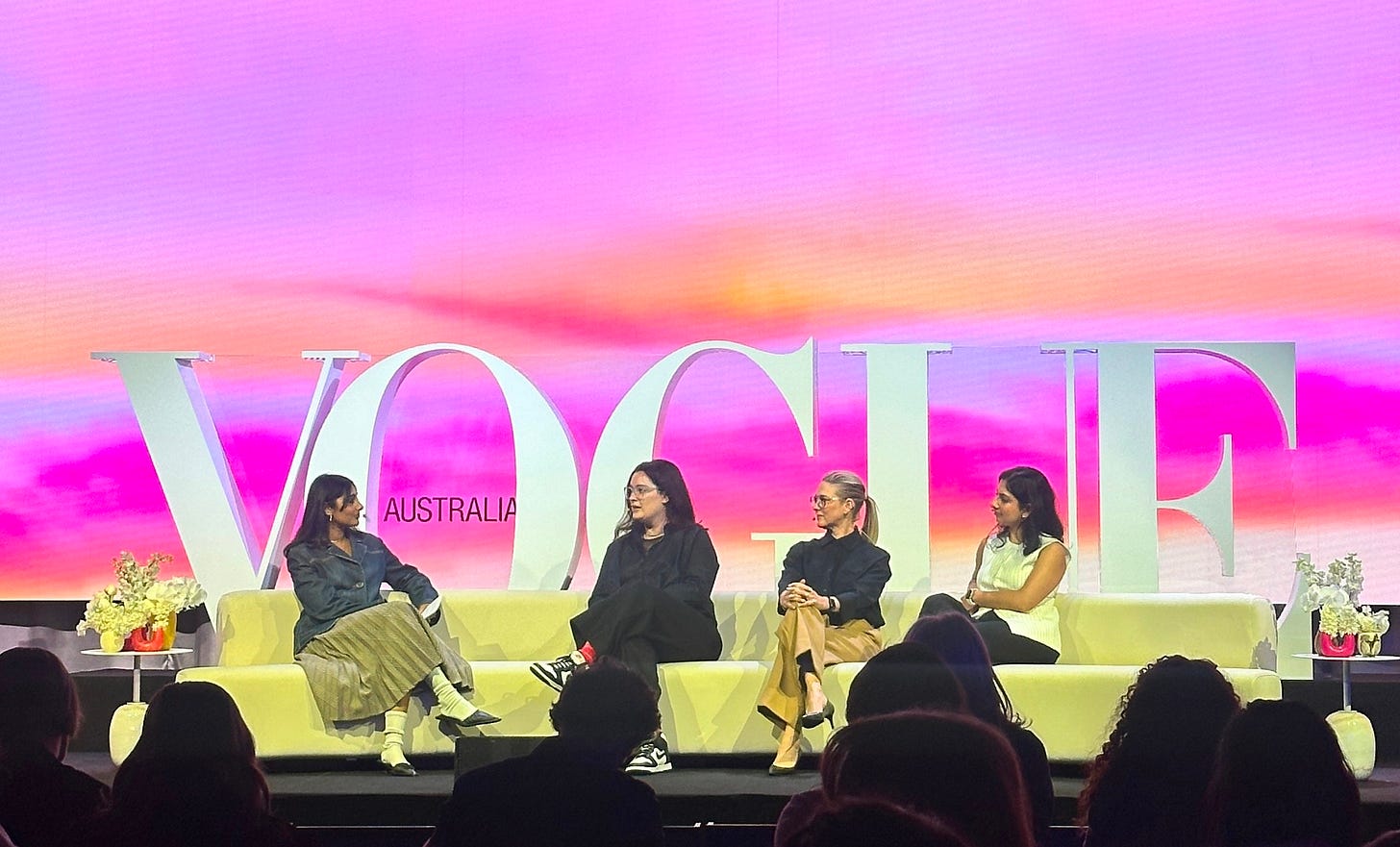
The best solutions are built by people who deeply understand the problem they are trying to solve. For example Maz Coote’s isolating experience in the fertility process, led her to create When Fertility, making it easy for other women to have early access to the information that would have helped her.
“Design is thinking about meaningful things - engaging body, mind, people”.
-Arriana Vignati, Associate Professor of Design, Torrens University
Not everything is google-able, market research frequently differs from people’s real, lived experience. Being close to the problem, watching people interact with it and trusting that you can learn from others is always valuable.
Joyce from Rare Beauty elaborated on this in her key note. Their packaging design was unintentionally accessible, a result of founder Selena Gomez’s lived experience with mobility issues. Realising that this was valuable to so many others living with similar conditions, they elaborated on it, instilling accessibility as a core principle.
They now intentionally engage with their community to learn how customers are using the products, where they can improve and uncover the insights that can lead to the next product.
“Find your give-a-shit committee. The people who can reassure you, help you up and celebrate you.”
-Sabina Streatfeild, Exec Manager of Innovation Ecosystems and Tech Community, Commonwealth Bank
They won’t exist in the form of likes and reshares, these are the real people who are invested and champions of what you do. Authentic leadership builds trust and as we know trust is the hack to efficiency. But you’re not expected to do this alone, having a give-a-shit committee is a support team that can encourage you, give you meaningful feedback when you need it and care about what you’re doing - a supportive environment to nurture your authentic self.
Just starting, even if it’s messy, is the first step to creating something new. I hate the term imposter syndrome (for reasons I won’t get into here), but being new to something gives you a unique perspective — the ‘imposter edge’ as Louis Bryant, Owner of DECJUBA puts it. People will always forgive mistakes, but inauthenticity is alienating.
Start scrappy, be authentic and find the support team that cares.
“The question is not ‘how can we get people to trust AI’ but ‘does AI deserve our trust?’”
-Laura Thomas, Strategy Manager, CSIRO
Trust is not a given, it must be earned. Whether this is in the context of AI or the secret service, there is a balance of trust that needs to be maintained.
Laura laid out three core elements of trust:
Transparency - removing the black box so users and regulators can understand what goes on behind the scenes
Education - helping the public and particularly young people understand what to look for and how to engage in an informed way
Regulation - parameters that can be relied upon for safe development, ensuring the guardrails and safeguards are there to protect the community.
Kerri Hartland, Director General of Australia’s Secret Intelligence Service illustrated how they maintain trust when secrecy is inherent to their operations - by setting clear goals for talented people, within clearly defined parameters with meaningful oversight.
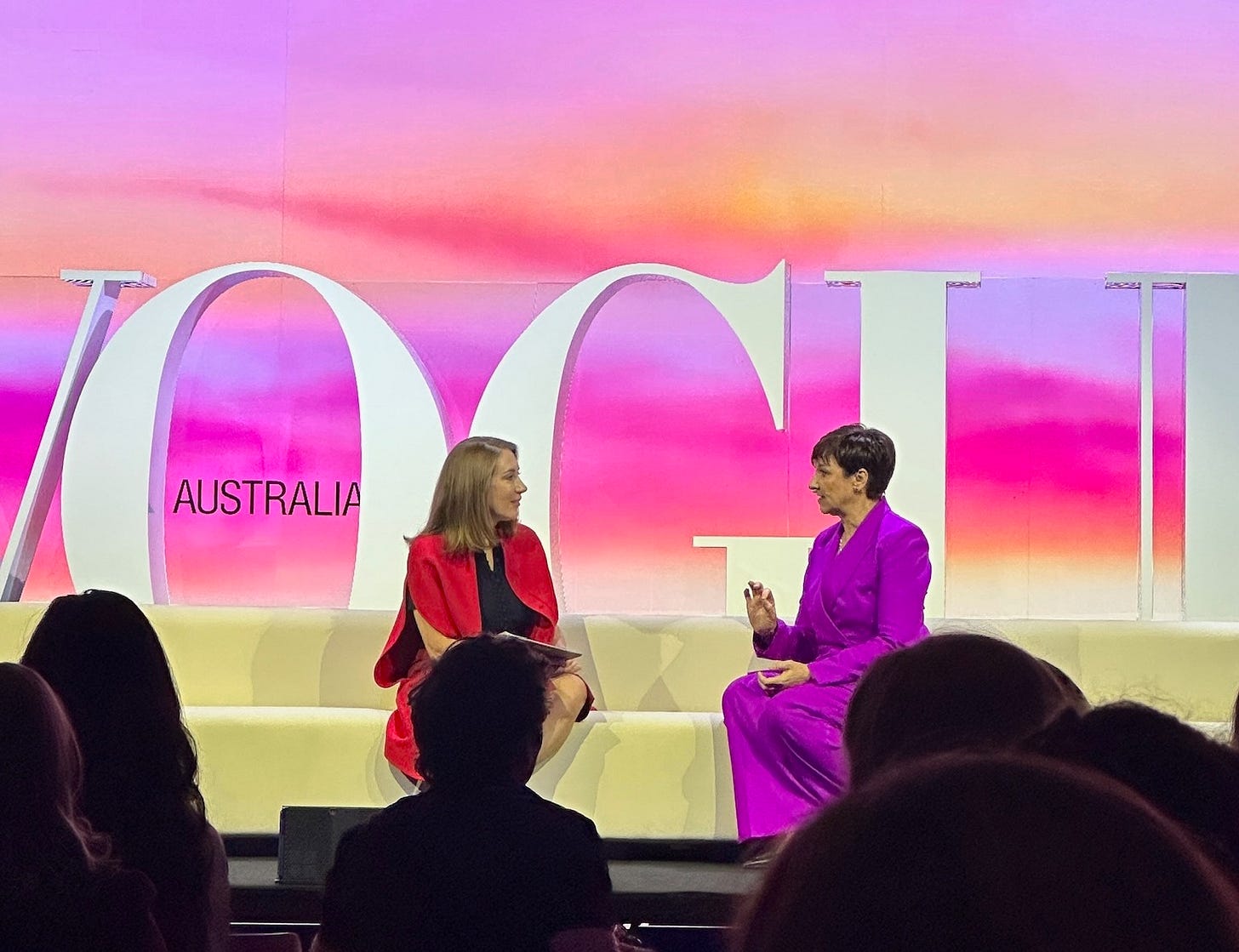
“Lead with Juxtaposition”
Justina Mejia-Montane, Head of New Formulations, Dyson
As Justina explains, this means finding the happy medium (*wink) in your management style. Balance empathy with strategy; vision with collaboration; data with intuition.
In the discussion on leadership, there were two skills in particular that stood out to me as important for the future: empathy and the ability to handle ambiguity.
Empathy is a muscle that can be built with intentional practice and is vital for human centred design (and meaningful design is always human centred).
The ability to handle ambiguity means becoming comfortable with feeling uncomfortable. By definition, innovation means doing something that has never been done before, and that can be scary! Becoming comfortable with forging a new path is an important skill.
“Innovation is about understanding people, connecting the dots”
- Kate Shum, Product Success Director, Technology One
Reasoning, empathy and the ability to solve new problems are all things AI cannot do.
More than coding or robotics, the power to understand people, connect the dots, find what’s missing and solve brand new problems is vital.
As Akanksha Malik put it “we are all technologists”. Occupations that have never been traditionally considered ‘tech’ will become important in the trans-disciplinary teams of the future - artists, designers and psychologists will be essential to the development of meaningful tech.
Thank you Vogue - such a great event full of truly inspiring conversations! I’m already looking forward to next year!
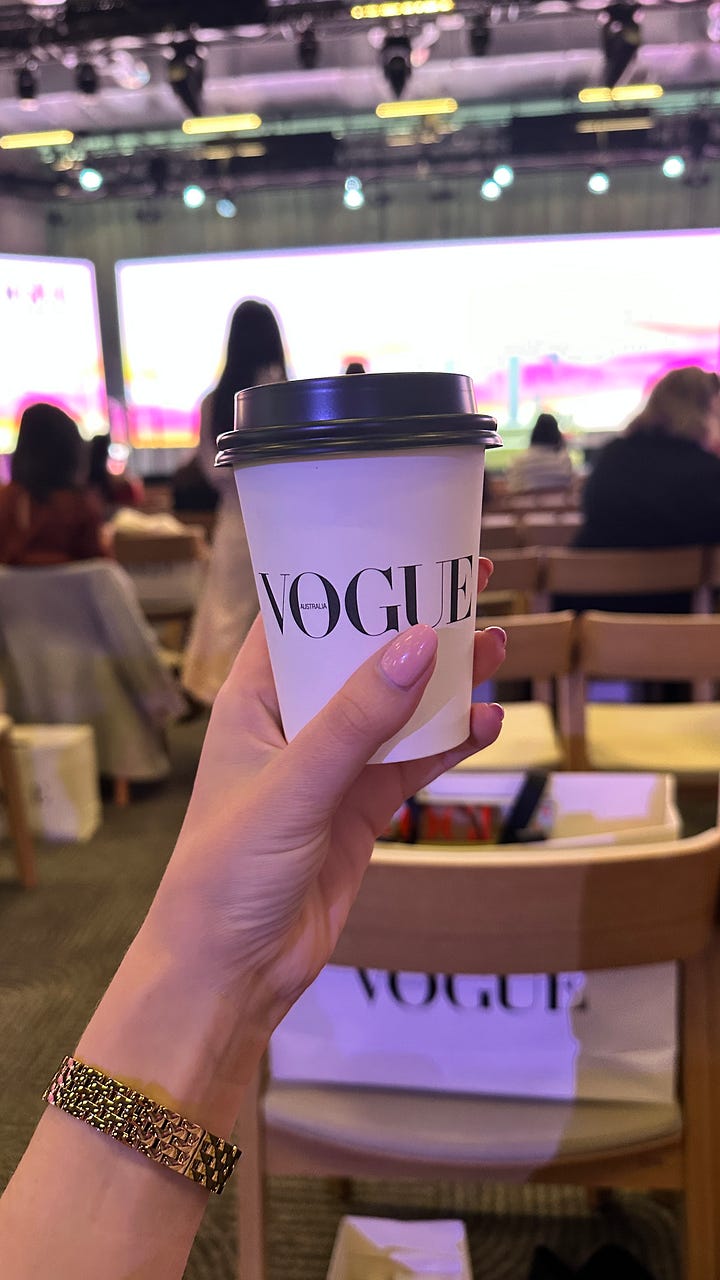
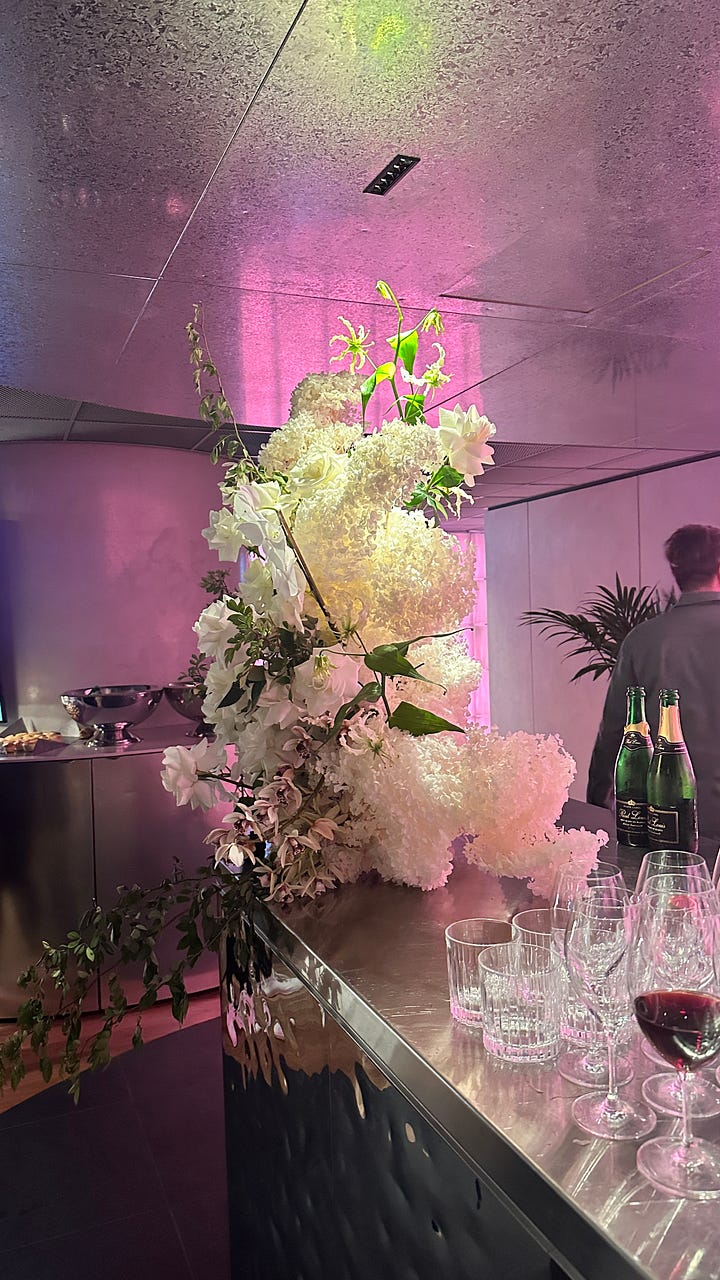

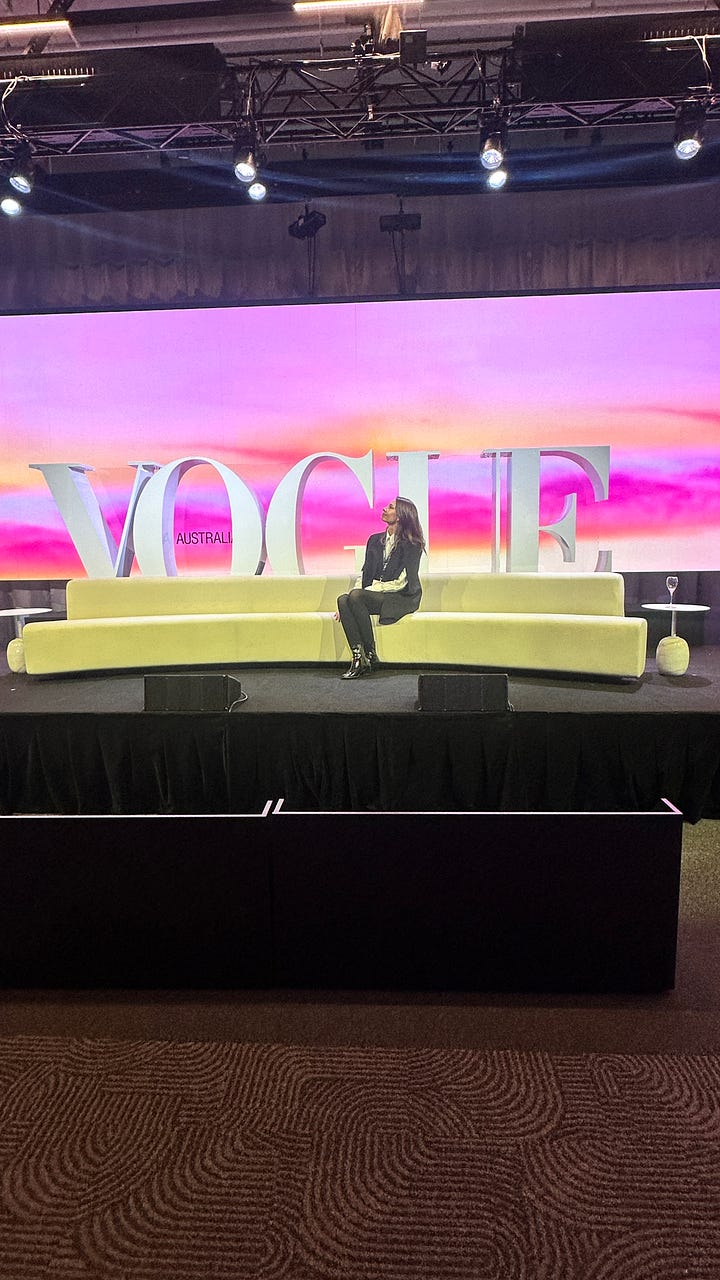
Here is the full list of panelists and topics if you are interested in diving deeper:
Next-Gen Care for Women: Fixing The Feminine Medicine Problem with Tara Croft, CEO Baymatob, Maz Coote, Founder and CEO When Fertility and Associate Professor Susan Evans, Founder Alyra Biotech and Co-Founder Pelvic Pain moderated by Vogue Australia’s Angelica Xidias.
In Conversation with Director-General Kerri Hartland, Australia Secret Intelligence Service (ASIS) and Vogue Australia's Edwina McCann
Investment, Etc: Mastering Money & How Finance Runs The World with Samar McHeileh, Managing Partner Scale Investors, Caroline Gurney, CEO Future Generation Investment and Jun Bei Liu, Founder TenCap moderated by Vogue Australia's Charlie Calver
Keynote & Conversation with Joyce Kim, Chief Product Officer, Rare Beauty moderated by Vogue Australia's Ana Eksouzian-Cavadas
What's next in human centred design? with Arianna Vignati, Associate Professor of Design at Torrens University moderated by Vogue Australia's Alison Izzo
The Augmented Human: Merging minds, bodies & humans with machines with Laura Thomas, Strategy Manager CSIRO Futures, Dr Janie Busby Grant, Associate Professor, Collaborative Robotics Lab, University of Canberra and Akanksha Malik, Data and AI Consultant and Microsoft AI MVP moderated by Vogue Australia's Nikki Chowdhury
Q&A: The Future of Flight with Associate Professor Sveta Postnova, A/Prof of Neurophysics and Brain Dynamics University of Sydney and David Caon, Designer moderated by Vogue Australia's Alison Izzo
Gap-Breakers 2025: Leading Women in Innovation with Kate Shum, Product Success Director Technology One, Justina Mejia-Montane, Head of New Formulations Dyson and Tania Austin, Owner and Chair DECJUBA with Vogue Australia's Louise Bryant
Jobs of the future: Futureproofing your career for the next big leap in STEM with Sarah Bradley, Lead Data Scientist at NASDAQ, Dr. Amy McLennan, Associate Professor at the ANU School of Cybernetics and Sabina Streatfeild, Executive Manager of Innovation Ecosystems & Tech Community, Commonwealth Bank moderated by Vogue Australia's Gladys Lai
Hosted by Edwina McCann, Editorial Director & Publisher, Vogue Australia
Get future fit with Problem Solving skills
Problem Solving 101 is an in-depth course that equips and empowers you and your team to feel confident approaching and solving any problems that arise in your business.
You can learn more here and either schedule a class for your team, or register your interest for upcoming classes.
Or if you’re after the crash course, check out the Problem Solving Mini.
Happy Medium is all about balance.
We help emerging businesses to find that sweet spot; growth that feels sustainable and enjoyable, not overstressed or stagnant.
Whether that’s defining your business strategy, streamlining your operations or equipping your team with problem solving skills, Happy Medium is about optimising your business to achieve your goals - in business and in life.
New here?
Check out past issues below and subscribe to get The Weekly in your inbox every week. Plus there’s a sneaky discount code on Happy Medium products when you sign up 😉
25. The Weekly - Seeking Truth
Welcome to the Happy Medium newsletter, where I share inspiration and bite-sized musings on creative business each week. Enjoy!
24. The Weekly - Illustrated Value
Welcome to the Happy Medium newsletter, where I share inspiration and bite-sized musings on creative business each week.







This made me wish I had attended with you on the weekend!